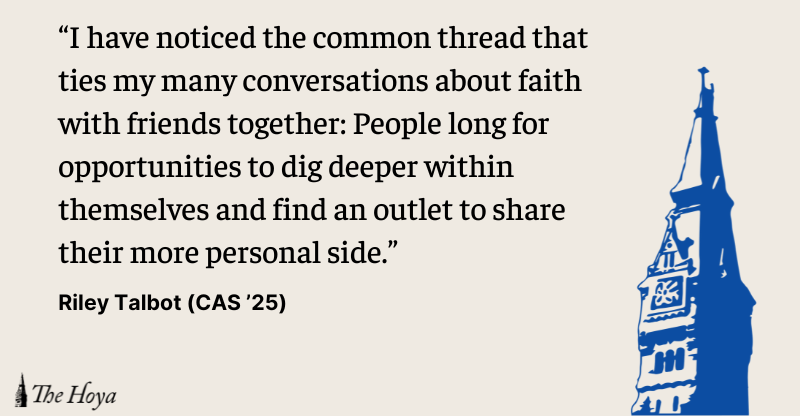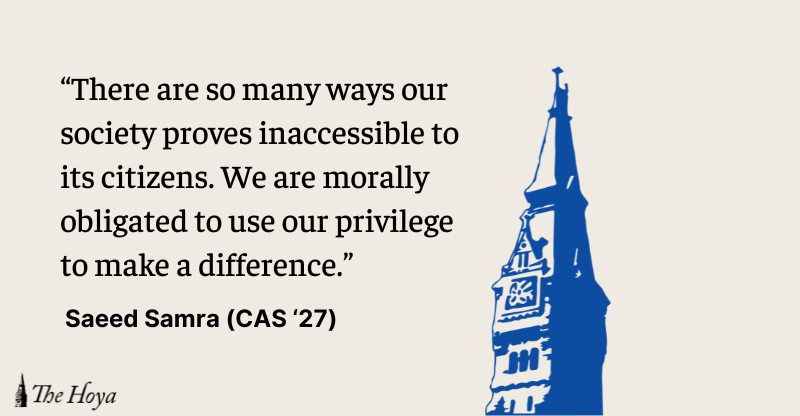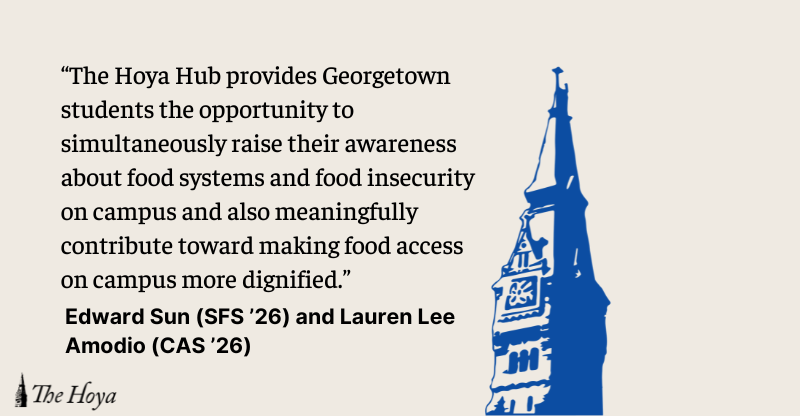Climate change is anthropogenic. Human activity and, in particular, our dependence on fossil fuels, causes it. Funds from private institutions — Georgetown University included — help prop up the fossil fuel industry and continue this cycle of dependence.
On Feb. 6, 2020, Georgetown released its Policy on Impact Investments and Fossil Fuel Divestment. This policy, though not binding, committed Georgetown to divesting from public securities — investments available to the public — and private investments in fossil fuel companies by 2025 and 2030, respectively. As of 2020, part of Georgetown’s endowment was in funds which invest in fossil fuels.
To ensure that Georgetown is following through on its goal of a sustainable investment policy, the Georgetown Renewable Energy and Environmental Network (GREEN) — a student organization that promotes sustainability and environmental awareness — has attempted to follow up on the university’s divestment policy. While the university’s laudable goals are abundant, clarity is lacking. A lack of regular reports makes it difficult for the Georgetown community to understand the institution’s ongoing financial relationship with the fossil fuel industry.
Though Georgetown’s administration has made commitments on paper, the community they are accountable to — students, parents, faculty and graduates — has no way to monitor how these commitments have translated into action. We call on the Georgetown community to advocate for transparency in the divestment process with the university. If we want change to happen, we need to make our voices heard.
This wouldn’t be the first time Georgetown students have made a change on the university’s divestment policy. In February 2020, GU Fossil Free — a student-run divestment campaign which disbanded following Georgetown’s commitment to divest — and the Georgetown University Student Association (GUSA) held a referendum on divestment from fossil fuels, showing the administration that students were largely in favor of divestment. As a result, this spurred the Board of Directors, the administrative body that governs Georgetown, to adopt its divestment policy.
Georgetown does not regularly disclose its investments; The last major update on divestment came in December 2020, in an article from The Georgetown Voice revealing that the university had significant, previously undisclosed investments in three fossil fuel companies. Four years later, Georgetown’s Office of Investment still has not provided information on any divestment progress.
Despite continued outreach through emails to Chief Investment Officer Michael Barry, who oversees Georgetown’s endowment, the Office of Investment has been distant and has directed our efforts to the Office of Sustainability. This office informed us that the Office of Investment is not set up for engagement, and thus we should stop expecting a transparent chain of communication with them. But the university must be transparent so that its students can hold it accountable to its commitments, especially ones that concern an issue relevant to the entire Georgetown community — climate change.
In October of 2023, Pope Francis called for more immediate action on climate change in his encyclical, or official papal statement, Laudate Deum. Given Georgetown’s status as a Jesuit university, the Georgetown community has the right to ascertain if the financial might of our institution is working to care for creation, or helping to destroy it.
We are not alone. Parallel movements exist at schools around the country, with which organizations like Fossil Free, a group that campaigns against fossil fuel companies, help us connect. Many of these movements are still working on the first step: to get their university to commit to divestment. Even if that commitment isn’t binding, we are proud that Georgetown has passed this milestone, but we have reached a more complex step in our search for transparency. Georgetown has the chance to set an example.
As a student or parent, you can stand with us by sharing your opinions with the Georgetown administration, attending one of our upcoming teach-ins or educating yourself about divestment from fossil fuels.
The administration has expressed to GREEN their vested interest in the fossil fuel market, arguing that divestment cannot be a linear process. As the administration points out, the fossil fuel market is hot. But however lucrative these investments may be, our destabilized planet is even hotter. We aren’t asking for new commitments, only for transparency on the commitments they have already made.
With the 2025 deadline to divest from public fossil fuel securities less than a year away, it’s time to hear from the administration about whether divestment is more than just an empty promise. We embody cura personalis in our classrooms, dorms and communities. We hope to be able to trust our administration to do the same.
Rachel Parks is a sophomore in the College of Arts and Sciences, Charvee Dua is a junior in the College of Arts and Sciences, Lizbeth Martinez-Ramos is a senior in the School of Foreign Service and Ben Sayers and Robert Valero are sophomores in the School of Foreign Service.




















